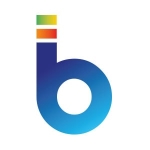What is our primary use case?
We use it for taking data and turning it into intelligence.
I have been using the most recent version of it. It is deployed in a government cloud.
How has it helped my organization?
What is most valuable?
Its ease of use is most valuable.
What needs improvement?
The biggest thing with Microsoft right now is better support. There should be more timely support. We can do 90% of it ourselves by the same token. When we're into the 10%, we do not get timely support via Microsoft's support team.
Its speed can also be improved. They should come up with a fix for the speed issue and give us some good parameters as to what would help with the speed. They should give us a good white paper that has a compatibility list, similar to what they provide with operating systems, and that describes what you should have before you use Microsoft BI.
There should also be a better way to possibly do things like geolocation, and where they do it, they should do it better. If you have a satellite, offices, and that sort of thing, it would be nice to see it in Tableau and different formats.
For how long have I used the solution?
I have been using this solution since it came out. It was probably 2010. I'm a Microsoft engineer, so I'm on a lot of beta test teams. So, I would see these items a bit earlier than anybody else.
What do I think about the stability of the solution?
It is overall in mid-range. Sometimes, it works very well, and sometimes, it doesn't. If it is not working very well sometimes, that means it is not a hundred percent stable.
What do I think about the scalability of the solution?
Its scalability is good. I've used it in very large major banks down to smaller entities, and it seems to not care about the scale.
Currently, we probably have 50 users. Its usage is moderate. We will increase its usage if they come up with a fix for the issues such as the speed.
How are customer service and support?
There should be more timely support. I would rate them a two out of 10 because of the lack of availability. Sometimes, we can't fix what we don't know how to fix, and it causes us a lot of time and waiting and that sort of thing. We have to have a US citizen, and I'm sure that they're just not scaled up to that.
How would you rate customer service and support?
Which solution did I use previously and why did I switch?
I have used other solutions but not in this cooperation.
How was the initial setup?
Its initial setup is somewhere in the middle. Each deployment seems to be a little different. You have auto-updates all the time on PCs. When you image a PC, it doesn't always match. So, each deployment is different, and I'm not sure they can change that because most of the updates are for security, but it is very important to be sure that you test the environment first before you put it into production. I know a lot of people who just put it into production because of the ease of use, but sometimes, that can be problematic. In terms of maintenance, it is not terrible.
What about the implementation team?
It was done in-house with the help of a Microsoft partner. Our experience with them was horrible. We ended up fixing it all ourselves. If five was the top, they were a zero.
What other advice do I have?
I would advise others to just do their homework. You should check it out first, do the trial, get it into your test environment, and then make your decisions. Don't rush to production. Everybody is a bit different. If you have monster databases out there, the performance might be a little different.
I would rate it a six out of 10. If their support were better, it would get a higher rating.
If public cloud, private cloud, or hybrid cloud, which cloud provider do you use?
Microsoft Azure
Disclosure: My company does not have a business relationship with this vendor other than being a customer.

















